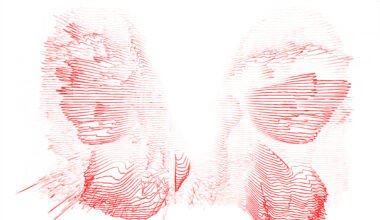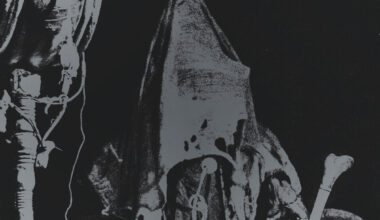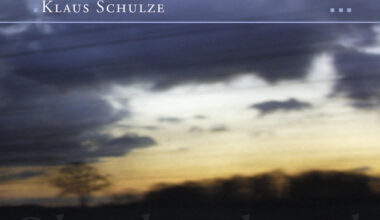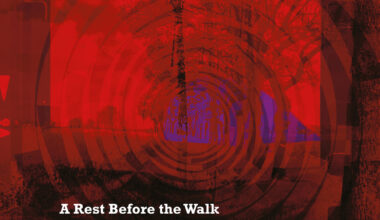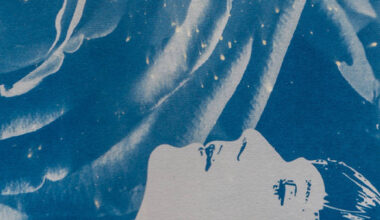Welsh language sci-fi inspired politically charged krautpop – what’s not to like?

Synth bells like sonar pings herald a coasting loop of drums and Fender bass. A detached double-tracked female voice floats in the firmament, guiding us through an undersea/outerspace/innerself synthscape. Opaque swooshes fly by, sonic debris echoes into endlessness. The voice fans out into sumptuous harmonies, taking up the intro bell’s tune. We’re travelling in a synthetic future-that-wasn’t, crafted in 1970s Germany, co-opted and glammed up in 2015 Cardiff by Gwenno Saunders, lately of arch indie-ists The Pipettes.
Until 1970, pop was sung in Foreign as well as English. Aznavour and Mouskouri emoted incomprehensibly in British homes and The Beatles recorded in four languages, until rock declared English cool and Foreign officially ridiculous. Shocking Blue, Abba and the Scorpions went fully Anglo. The Who told their Paris crowd, “We’d like to speak in French, but we didn’t go to school”.
Forty years on and Welsh is okay. Gorky’s, Furries – Welsh is sounding good. Gwenno Saunders’ ‘Y Dydd Olaf’ (‘The Last Day’) is entirely Welsh (except when it’s Cornish), a bold move reflecting recurring themes of defiance and rebellion. It opens with ‘Chwyldro’ (‘Revolution’), followed by ‘Patriarchaeth’ (which hardly needs translating). “Patriarchaeth a dy enaid di tan warchae” (“Patriarchy and your soul is under siege”) sings Gwenno dispassionately, over a fantastically funky one-finger synth bass and pleasing off-key drones.
The title of the album is lifted from Welsh writer Owain Owain’s 1976 novel in which robots clone humans and, intentionally or not, Gwenno’s voice has an android ring to it. For non-Welsh listeners, the language adds to the alien effect. She sounds soothing, but there is an ironic Stalinism in lines like “Llawenhawn ym mharhad llwyddiannus ein gormeswyr gogoneddus” (“Let us rejoice in the continuing success of our glorious tyrants”). Sometimes you wish she would crack and spill some emotion, but in vain.
That said, she does carry some beautiful melodies, although the real soul here is in the tunes, the widescreen sound, the lovely indistinct details at the edges. And besides being Welsh, there’s plenty of German sentiment. On ‘Chwyldro’, there’s the line, “Byw’r gorffennol ar dy gyfrifiadur / Ond sdim ar ôl o’r hen adeiladau” (“Living the past on your computer / Whilst there’s nothing left of the old buildings”), but the past is present here in the form of analogue synths and rhythms gifted by Kraftwerk, Neu! and Can. It’s a world previously mined by Stereolab, but this is less studious or kitsch, more joyous and expansive. Gwenno mixes her influences on her own terms and we’re not just in 70s Europe. These songs also recall wide-eyed American pop, with hints of Tom Tom Club, The Go-Gos, even Madonna.
There are unpredictable touches too, particularly in some of the intros, which could stand as little abstract pieces of their own. There’s a nice moment in ‘Sisial Y Môr’ (‘The Whispering Sea’) when an unsynced soft horn synth arpeggiator starts looping, apparently in conflict with the rest of the tune, but it goes on anyway. The start of ‘Stwff’ (’Stuff’) meanwhile recalls The Beatles’ ‘Revolution 9’. Then in comes that rhythm again.
All in all, ‘Y Dydd Olaf’ is a confident and playful production. It feels like there’s a glorious pop record struggling out of the retro grooves. But in the closer, ‘Amser’ (Cornish for ‘Time’), as another opaque soundscape brings in another giant bassline, Gwenno sticks to the programme. And so we climb on once again and head into weightlessness.

